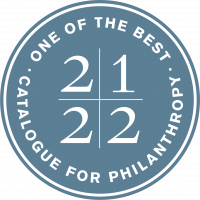AJE is pleased to share this information and resources with our community!
 New Product: Tools to Employ and Support Interveners
New Product: Tools to Employ and Support Interveners
An important resource is now available that describes the work interveners do to provide one-to-one support for children who are deaf-blind and offers detailed information on employing and supporting them. Tools to Employ and Support Interveners describes intervener roles and responsibilities, how to navigate the employment process, and intervener training and certification.
Integrating Foundational Computational Thinking into Daily Routines and Activities
The ED-funded STEM Innovation for Inclusion in Early Education (STEMIE) team has developed a series of video demonstrations and a resource on how STEM, specifically foundational computational thinking can be integrated into children’s daily routines and activities. The resources provide examples of adaptations for young children with disabilities.
What New Special Education Directors Need to Know About Assessments
The National Center on Educational Outcomes (NCEO) recently published What New Special Education Directors Need to Know About Academic Assessments. The purpose of this toolkit is to provide easy access to information that will help state special education directors fulfill their role in ensuring the participation of students with disabilities in assessments. The highlighted information and resources can help support special education directors in ensuring that all students with disabilities are included in state, district, and school assessments and accountability systems in a manner that is appropriate for each student based on their specific instructional and assessment needs.
Research Highlights from the National Center for Special Education Research
The Institute for Education Science’s National Center for Special Education Research (NCSER) funds research designed to expand knowledge and understanding of learners with and at risk for disabilities, from infancy through postsecondary settings. We share a report below on findings related to special education.
Improving Academic Achievement through Instruction in Self-Regulated Strategy Development: The Science Behind the Practice features an interview with Dr. Karen Harris on Self-Regulated Strategy Development, an evidence-based instructional approach to improve student writing that has been found to work for students at various grade levels with and without disabilities.
TIES Center’s “Inclusive Big Ideas” can be used to plan grade-level standards-based English language arts reading literature lessons for all students, including those with significant cognitive disabilities. The resource can spark ideas for developing instructional strategies and activities; identifying essential content, concepts and standards-based vocabulary; removing common student barriers to learning; and integrating cross-curricular connections and evidence-based practices that optimize engagement.



Leave a Reply